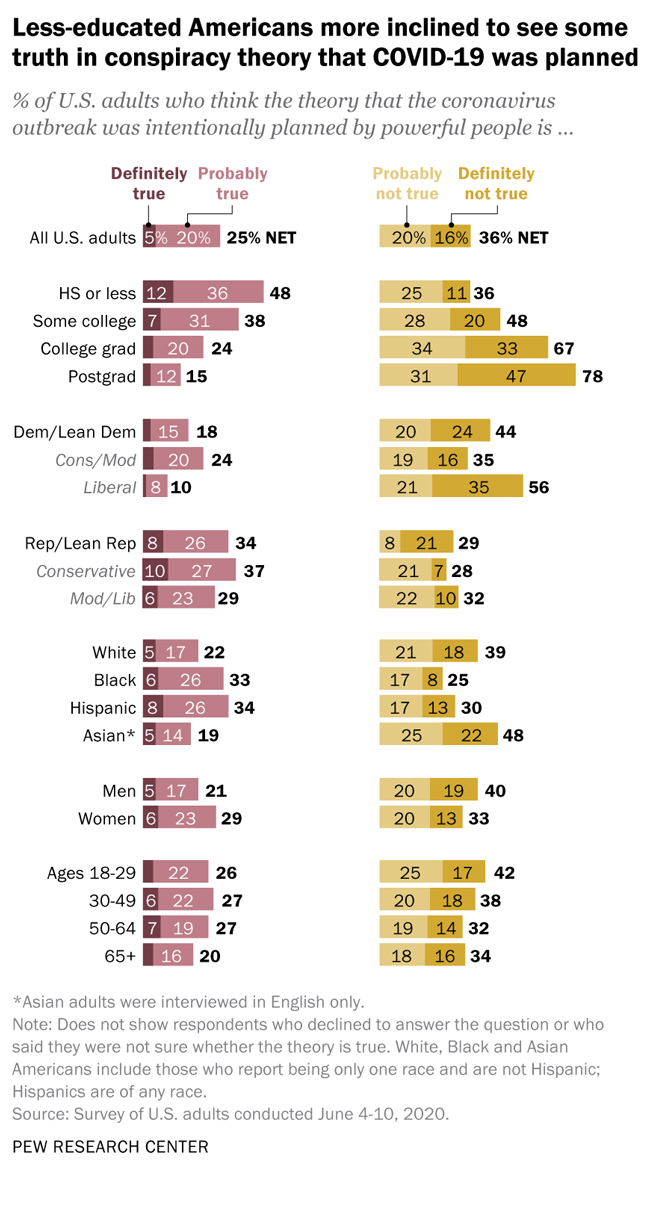Most Americans (71 percent) have heard of a conspiracy theory circulating widely online that alleges that powerful people intentionally planned the coronavirus outbreak. And a quarter of U.S. adults see at least some truth in it—including 5 percent who say it is definitely true and 20 percent who say it is probably true, according to a June Pew Research Center survey. The share of Americans who see at least some truth to the theory differs by demographics and partisanship.
Educational attainment is an especially important factor when it comes to perceptions of the conspiracy theory. Around half of Americans with a high school diploma or less education (48 percent) say the theory is probably or definitely true, according to the survey, which was conducted as part of the Center’s American News Pathways project. That compares with 38 percent of those who have completed some college but have no degree, 24 percent of those with a bachelor’s degree and 15 percent of those with a postgraduate degree.
Partisan affiliation also plays a role in perceptions of the theory. About a third (34 percent) of Republicans and independents who lean to the GOP say the theory that powerful people intentionally planned the COVID-19 outbreak is probably or definitely true, compared with 18 percent of Democrats and Democratic leaners. It’s worth noting there is no significant difference in how likely partisans are to have heard at least a little about the theory: 72 percent of Republicans have heard of the claim, compared with 70 percent of Democrats.
Click here to read the full story from Pew Research Center.
